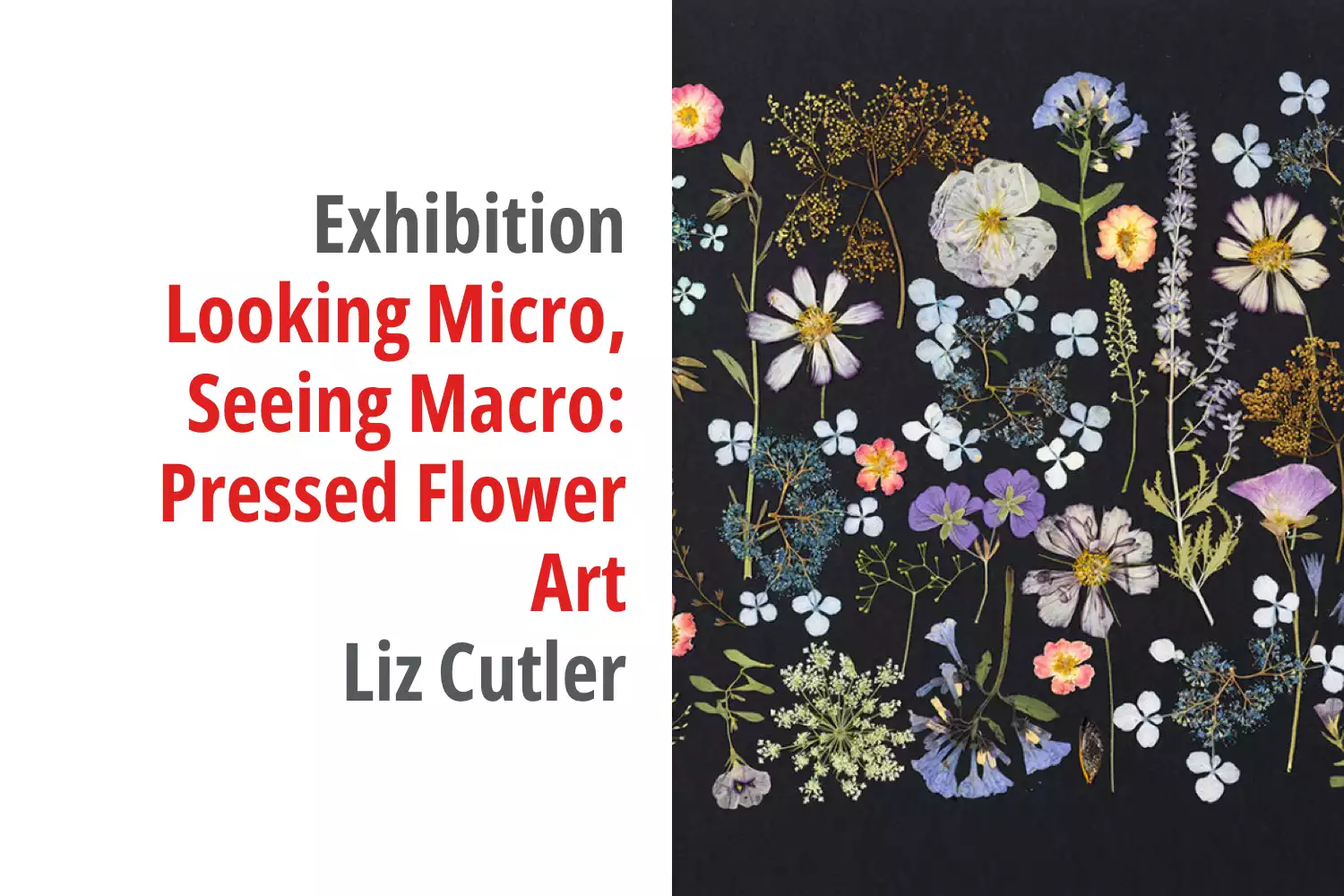
Exhibit Info
This Exhibition Is No Longer Showing
Title:
Looking Micro, Seeing Macro Pressed Flower Art
Dates:
Oct. 9, 2021 – Jan. 3, 2022
Location:
Artist Bio
To see a digital gallery of this exhibit, please visit this link.
Liz Cutler has been part of Upper School English faculty at Princeton Day School since 1985 and has been the sustainability coordinator since 2009. She is the founding director of OASIS (Organizing Action on Sustainability in Schools), a non-profit consortium of approximately 50 New Jersey schools and school districts who work together to help each other become more sustainable. She was on the original executive committee of Sustainable Princeton and was on the Princeton Environmental Film Festival committee. She founded Noazim, a wilderness Judaica summer camp experience for high school students and was a wilderness instructor for 15 years. She also worked on the Hudson River Sloop Clearwater. Her awards include: Stony Brook Millstone Watershed Association “River Friendly Teacher” Award, Sustainable Princeton Leadership Award, National Garden Club of America Elizabeth Abernathy Hull Award, and the Stony Brook Millstone Watershed Association Richard Rotter Award for Excellence in Environmental Education.
She has no art training at all. In fact, this is her first journey into the artistic world. She started collecting, pressing and arranging during walks near her home (through the local woods, meadows, neighborhoods, and her kind friends’ gardens) throughout the pandemic and her son’s very serious illness. She calls these pieces “her meditation.”
Artist Statement
Either we are in such a rush, hurrying from one exigency to the next or we are out of the habit of really seeing what’s around us, that we rarely stop to look closely at the beauty in nature everywhere: the plant growing in the sidewalk crack, your neighbor’s flower box, the meadow you drive by, the tree down the block just beginning to flower. When we do slow down and observe, we see that each tiny bit of the natural world is interesting in its own way: complicated, gorgeous, perfect. What if we regularly looked at life in this fashion, would we understand the complex interconnectedness of everything, the patterns that make life beautiful? Would we treat the natural world differently, like a sibling rather than a resource to use and abuse? Would we understand ourselves more clearly and rethink our place in the universe?
A short description that shows in the advertisements.
